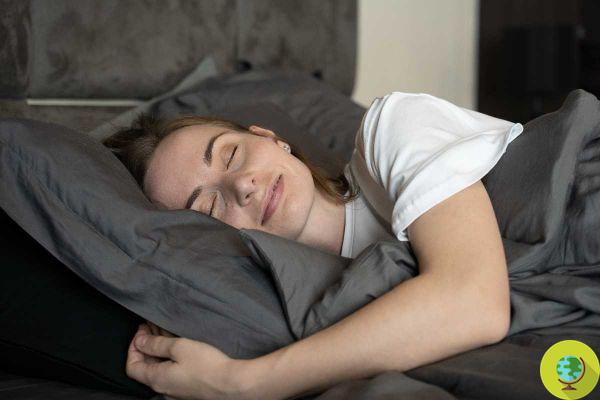
How a simple activity practiced every day can lead us to much longer life expectancies.
Don't store avocado like this: it's dangerousThe secret to living longer isn't just about following a complete and healthy diet or exercising. Sometimes, simple habits belonging to our daily routine can have totally unexpected long-term beneficial effects. Several researches have in fact confirmed that an activity that many people follow is one of the ways to increase life expectancy: have a regular sleep cycle.
Sleeping well means lowering cholesterol levels, reducing the risk of cardiovascular disease and avoiding the risk of early dementia. Therefore, sleeping regularly (always going to sleep at the same time, having a fixed alarm, getting a good quality sleep) helps us to keep our body and mind healthy and efficient. Let's find out why. (Also Read: Dementia: The way you sleep after age 50 can increase your risk by 30%)
What scientific research tells us
Not getting enough sleep increases the risk of developing serious conditions, including obesity, diabetes, dementia, and cardiovascular disease. Irregular sleep cycles are closely associated with a short life expectancy, as during sleep our bodies carry out processes that are essential to keep the cardiovascular system and the brain healthy.
In a research by the Oxford Academic, the correlation between sleep and mortality was analyzed through a study that lasted for 22 years. 21.268 twins over the age of 18 responded to questionnaires regarding their sleep habits, which were then sold in three categories: short sleep cycles (slept for less than 7 hours), average o long (they slept for more than 8 hours). The results showed that they were present increased mortality risks both among men and women who had short or long sleep cycles. The study also observed how, over the years, the duration and quality of sleep changed in more than a third of the subjects. For this reason, people with average sleep cycles present significantly reduced mortality risks.
In another study published in the National Library of Health, the link between longevity of life and regular sleep habits was analyzed. Sleep is in fact one of the processes that is negatively conditioned with advancing age, which is why I was dying.Researchers have tried to study sleep habits in individuals over 80 years old. In particular, positive relationships between sleep quality and healthy aging have been noted in people who have managed to exceed 100 years of age. This shows us how healthy sleep habits lead to greater longevity, as this considerably reduces the risk of developing cardiovascular disease.
Some tips you could follow to sleep better are:
- try to establish a correct evening routine, waking up and going to sleep at the same times;
- try to avoid afternoon naps that could compromise our sleep habits;
- relax before going to sleep, for example by taking a warm bath or practicing yoga exercises;
- it is better to turn off your pc and smartphone half an hour before falling asleep.
Follow us on Telegram | Instagram | Facebook | TikTok | Youtube
Fonti: Oxford Academic / National Library of Health
On the topic of sleep, you may also be interested in:
- You should immediately start sleeping with a pillow between your knees
- Predictive sleep: The way you sleep can be a wake-up call for high cholesterol
- What happens to your metabolism (and blood sugar) if you go to bed every night after this specific time
- What happens to your body if you go to sleep with the phone charging on the bedside table
- Somniphobia, the uncontrollable fear of falling asleep: what it is, causes and symptoms


























